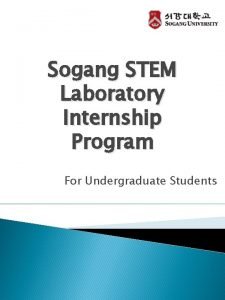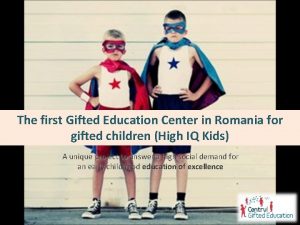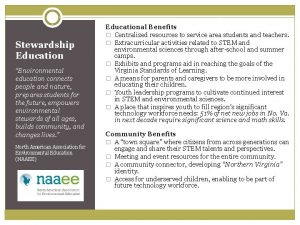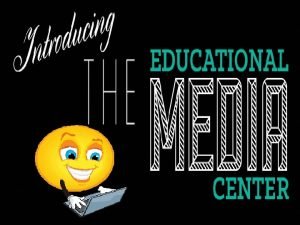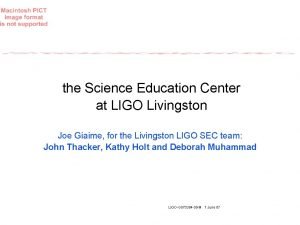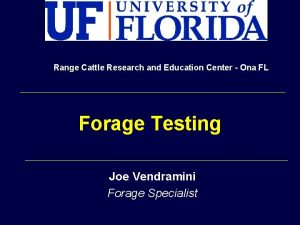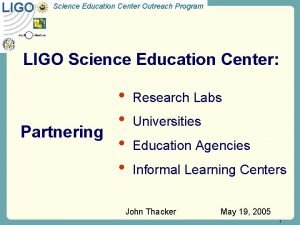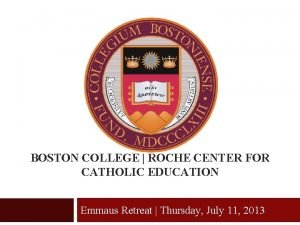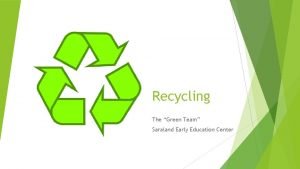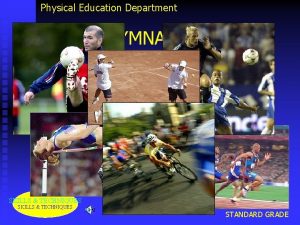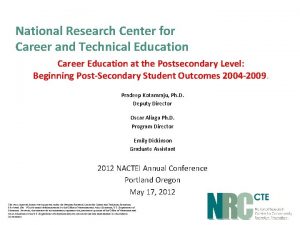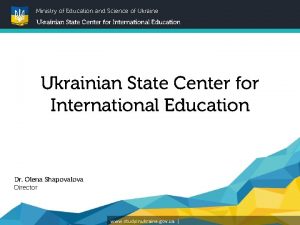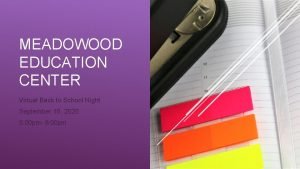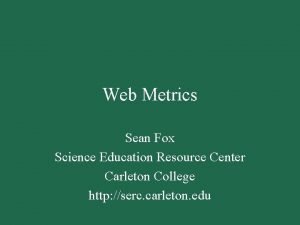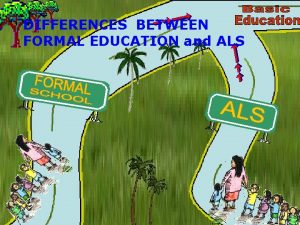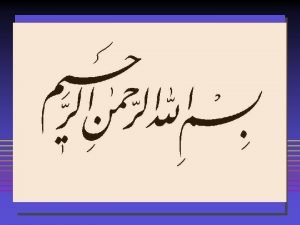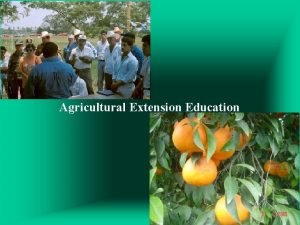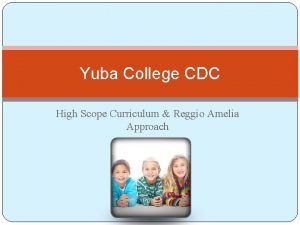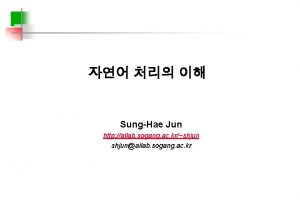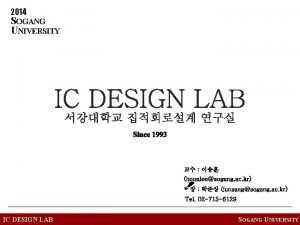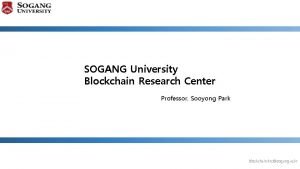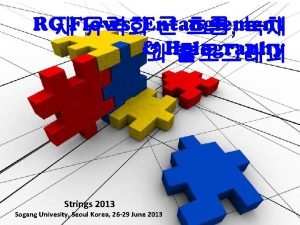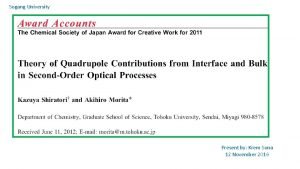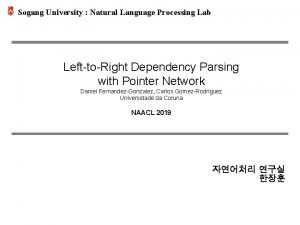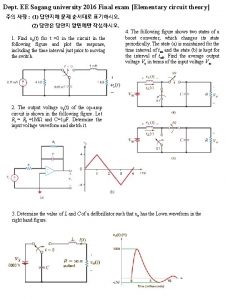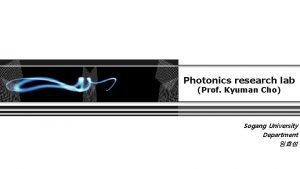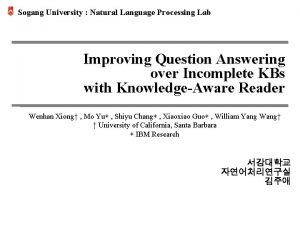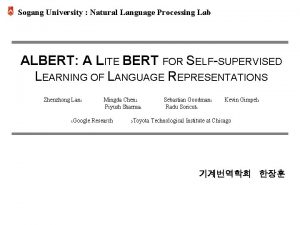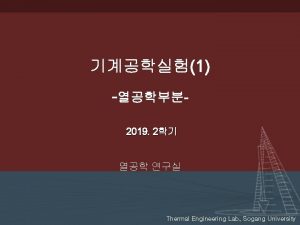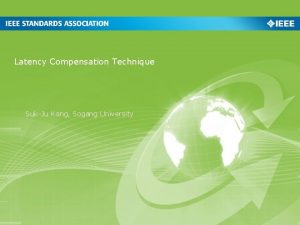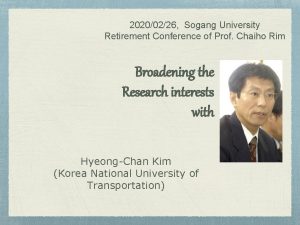SW Education in Sogang 1 SW Education Center





















- Slides: 21

SW Education in Sogang

1. SW Education Center Establishment Background Fourth Industrial Revolution is characterized by a fusion of technologies that is blurring the lines between the physical, digital, and biological spheres. 2

1. SW Education Center Establishment Background SW Centered Society to prepare for the 4 th industrial revolution What is SW Centered Society? - SW is the center of innovation, growth and value creation. - SW dominates the competitiveness of individuals, companies and countries. 3

2. Ideals and Goals of SW Education Center SW Centered University is a University that strengthens SW competitiveness of students, companies, society and spreads SW value by innovating university education centering on SW. Reorganization of the curriculum reflecting industrial needs - Development and operation of joint problem-solving curriculum for universities and companies - Composed of professors with rich practical experience - Industry-University Cooperation Project and Long-term Internship Mandatory - Reinforcement of practical English education Developing convergence talents that combine knowledge of other major fields and SW skills - Mandatory SW basic education for new students such as humanities and social studies, reflecting characteristics of each major - Activation of convergence SW course Selection of talent, Improving teacher evaluation, spreading SW value - Preparation for SW specialist entrance examination - Improvement of teacher evaluation system - SW education for youth - Strengthen cooperation between universities by sharing overseas education and internship programs 4

3. SW Education Center History 2016 Feb. A Computational Thinking textbook was developed. 2015 Dec. Sogang SW Education Center was organized. Nov. Professor Seo Jung-yeon took over as the head of the center. Oct. Sogang University was selected as SW Centered University. Sogang SW Education Center was founded. 5

4. Organization Professors Yongun Yoon Director Kyunghee Seo Jisun Lee Kyuho Kim Eunsook Kang SW Education Center Naeun Zang Misoo Kwon Mihyang Na Youngpyo jun Curriculum innovation committee SW major education committee Convergence SW major education committee Evaluation committee Industry R&D committee SW value spreading committee SW, convergence SW, non -SW major educational evaluation Corporate Internship Elementary, middle and high school SW camp Overseas Internship SW leading school support Non-SW Major Education Committee Corporate Mentoring 6

5. Regular SW Course Computer Science and Engineering (81 credits) Convergence SW (36 credits) Elective course 4 th grade Game Programming, Video Content Planning and production, smart app planning and production, western philosophy, film and modern China Basic Computer Engineering 3 rd grade Introduction to IT, C Language, Data Structures, Algorithm, OS, Database Knowledge/Communication Media Programming (Java. Script, HTML 5) Science/Engineering 1 st grade Scientific Computing Programming (Mat. Lab) Capstone Design, Internship, Capstone Design 2, Graduate School Linkage Course Bridge Courses Computer Engineering Theory Statistics, Media Understanding and Practice, Web Programming, Mobile Programming SW Education for all new(6 credits) 2 nd grade Computer Engineering Project Course Unlimited Selection a Convergence SW Double Major Humanities/Law Internet Programming (Language for searching materials) Sociology/Economics/Business Statistical Programming (SPSS, Excel) Core selection (3 credits) Core Essential (3 credits) Computational Thinking Computer Architecture, OS, Network, System Programming, Compiler, Advanced Software Training, SW Specification Techniques, Computer Graphics, Embedded System Software, Software Engineering, So. C Computer Science Basic Course Introduction to IT, Engineering Design, Discrete Structure, C Programming, Data Structure, algorithm, Digital Design, JAVA Language, Assembler Language, Computer Engineering Design and Experiment Introduction to Computer Engineering (3 credits) SW major Non SW major 7

5. Regular SW Course 5. 1 SW education for all new students Computational Thinking - As we move into a software-driven society, we aim to improve understanding of software by experiencing and understanding programming thinking skills required for core competencies in all fields. - In this course, students learn the basic grammar of python and practice by themselves. subject Computational Thinking Target Student All new Students (82. 3%) Programming Language Python Lecture / Practice Open 18~20 classes per semester 60 to 80 students per class Open Lab open 4 days a week in the evening Mentors are always in residence 8

5. Regular SW Course Computational Thinking - Open 18~20 classes per semester. There are 60~80 students in one class. In Computational Thinking course, classes and practical exercises are performed at the same time. In practice, students can freely ask questions to mentors. It consists of one mentor for every eight students There are 7 to 10 mentors in a class. The constant help of the mentor in class time and Open. Lab helps students improve their programming skills. 9

5. Regular SW Course 5. 2 Applied Programming - It is a core compulsory elective course for second year students. - 14% of second year students took classes in 2017. Advanced Applied C Programming Target Student Second year, College of Science and Engineering students Programming Language C + Matlab Lecture / Traning Open 4~5 classes per semester 60 to 80 students per class Open Lab open 4 days a week in the evening Assistants are always in residence Basic Applied Software Programming Target Student Second year, College of Humanities, Social Science, Economics students Programming Language Python Lecture / Traning Open 1 classes per semester 20 students per class Open Lab open 4 days a week in the evening Assistants are always in residence 10

5. Regular SW Course 5. 3 Convergence Software (major) - Sogang University has established a convergence software major since 2014 for the SW education of non-IT majors. For students over four semesters, except electronics and computer science and engineering, convergence software can be freely selected. The goal of Track A is to educate students who are not majoring in software, and to cultivate talented individuals who have the ability to creatively integrate SW fields and various non-it fields. Track B aims to cultivate talented people who can create new humanities knowledge based on IT by combining humanities and computer science. Major Convergence Software – Track A Total Credits At least 36 credits Required Course Major Required Electives Elective course - Introduction to C Language - Introduction to Java Language - Introduction to Data Structures - Introduction to Algorithms - Introduction to Operating Systems - Introduction to Database Systems - Convergence Software Capstone Design - Introduction to IT - Statistics 1 course - Mathematics 1 course - 2 courses in Introduction to Software Engineering, major courses, computer science and engineering courses 11

5. Regular SW Course 5. 3 Convergence Software (major) Major Convergence Software – Track B Total Credits At least 36 credits Required Course - - Information Society and Humanities - Introduction to C Language - Introduction to Data Structures Major Required Electives - 3 courses in Corpus Linguistics, Digital Jumanities, Language and Statistics, Big Data, Cultural Industry and Storytelling, Information Processing and Natural Language - Introduction to Algorithms - 1 course in Introduction to Java Language, Introduction to Operating Systems - 1 course in Introduction to Database Systems, Convergence Software Capstone Design Elective course - 3 courses in Korean Language and Literature, History, Philosophy, Religious Studies, English and American language, American cultue, European culture, German culture, French culture, Chinses culture, Japanese culture The number of convergence software students was 139 in the fall semester of 2015. The number of convergence software students was 191 in the spring semester of 2016. The number of convergence software students was 211 in the fall semester of 2016. The number of convergence software students was 243 in the spring semester of 2017. The number of convergence software students was 278 in the fall semester of 2017. The number of convergence software students is increasing every year. 12

5. Regular SW Course 5. 4 Computer Science and Engineering (major) - Through the education of the computer field based on theory, creativity and personality, we train leaders who can lead the entire IT field of the nation. The Department of Computer Science and Engineering at Sogang University nurtures talented students in the computer field who have the right adaptation to the changes of the times and the right world view based on the Jesuit education ideology of the long tradition. Theory of basic science and application - To develop the ability to apply theories and knowledge acquired in basic science, especially mathematics, to the major. Through the curriculum beyond the more intensive majors as well as the study of basic sciences, students are able to realize the academic depth of the computer field and give application ability. Theoretical and practical skills of computer specialization - Based on in-depth theoretical training on computer-related specializations, students should have the following abilities: Ability to recognize and model computer problems Ability to design and implement computer components and systems Ability to understand analyze data Ability to use the latest technologies, tools and languages related to computers Ability to define and understand problems and solve them creatively Ability to perform the role of a team member Cultivate responsible moral talent through personality education - Through personality education, students should have ethical and moral responsibility to be a leader in the computer field. 13

6. Non-Regular SW course 6. 1 SSOC (Sogang SW Open Courseware) - A system capable of creating and opening an online lecture in the form of User Edited Contents (UEC) that extracts only the necessary parts of lecture contents from all over the world and creates new contents. - http: //ssoc. sogang. ac. kr 14

6. Non-Regular SW course 6. 2 Youth SW Education Summer SW camp with Sogang University and Mapo-gu - SW introduction and practice training using entry for elementary school students in Mapo-gu - 40 students were educated for 5 days. 15

6. Non-Regular SW course Summer SW Coding Advanced Course - Basic learning about coding and carrying out project using Arduino. - 21 elementary school students with experience in coding are trained for 6 days. 16

6. Non-Regular SW course Mapo-gu Creative SW Contest - A team of middle school students from Mapo-gu holds a SW competition. - SW related booths operated. 17

6. Non-Regular SW course Algebra competition for high school students in Sogang University - Algorithm contest held for high school students nationwide. 18

6. Non-Regular SW course Special Lecture on SW with Sogang University - The professors belonging to the SW education center went to middle and high school in Mapo-gu and lecture on SW. - In 2017, 10 lectures were held on various topics such as software, IT, robotics, and AI. 19

6. Non-Regular SW course Sogang University Hackathon Contest - Topic selection with 100 seconds of oral speech. - Organize teams based on adopted topics. - Perform the project for 3 days. - 62 students from Sogang University participated. 20

6. Non-Regular SW course 6. 3 Global Intership - The scope of activities of the professional SW personnel is not limited to the domestic. - Global competitiveness is an important factor for employment and start-up. - There is an internship system to train global talent. education Long-term Internship Short-term Internship Overseas University Education Student(s) Company / Program 1 Grush (US) 1 LG Electronics Nordic AB (Sweden) 1 panasonic (US) 5 Headstart (Silicon Valley, US) 7 Purdue University 1 Purdue University 2 University of California, Irvine 21
 Sogang mllab
Sogang mllab Gifted education
Gifted education Stewardship
Stewardship Halpern education center
Halpern education center Educational media definition
Educational media definition Ligo science education center
Ligo science education center Range cattle research and education center
Range cattle research and education center Ligo science education center
Ligo science education center Roche center for catholic education
Roche center for catholic education Saraland early education
Saraland early education Centre of gravity in gymnastics
Centre of gravity in gymnastics National research center for career and technical education
National research center for career and technical education Ukrainian state center for international education
Ukrainian state center for international education Meadowood education center
Meadowood education center Kleist health education center
Kleist health education center What does this picture show
What does this picture show Science education resource center
Science education resource center Tropical research and education center
Tropical research and education center Difference between als and formal education
Difference between als and formal education Difference between health education and physical education
Difference between health education and physical education Extension education is non formal education
Extension education is non formal education Reggio curriculum
Reggio curriculum
